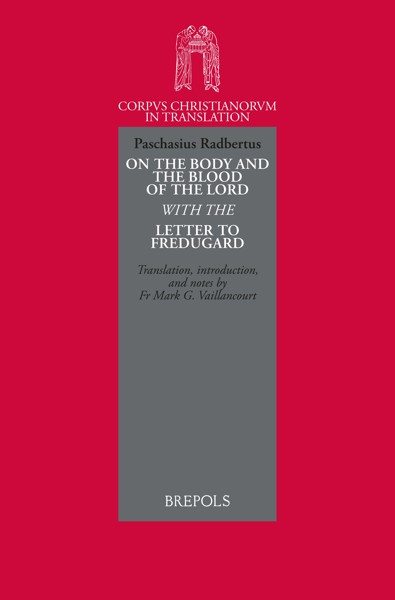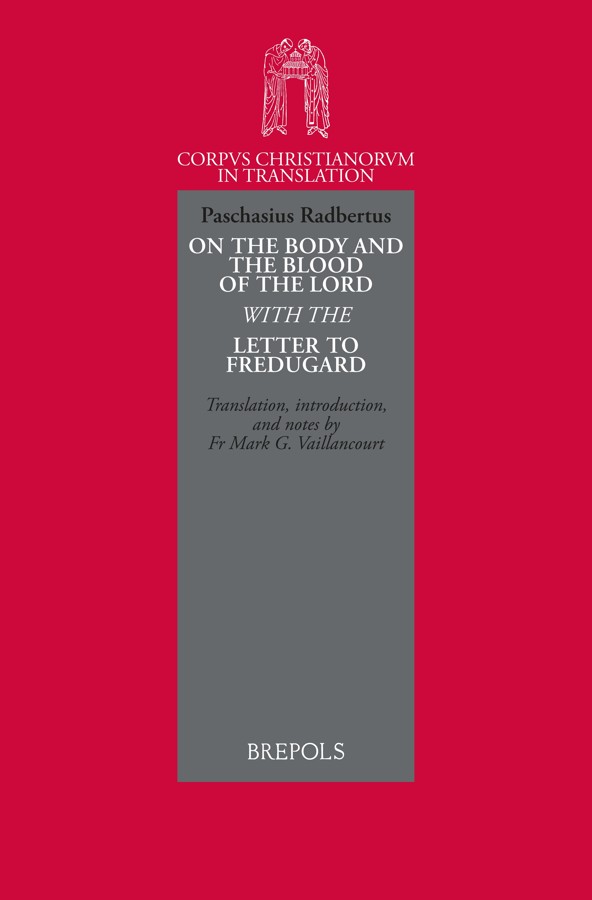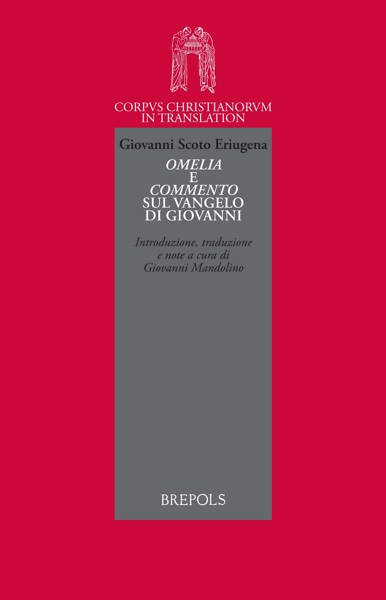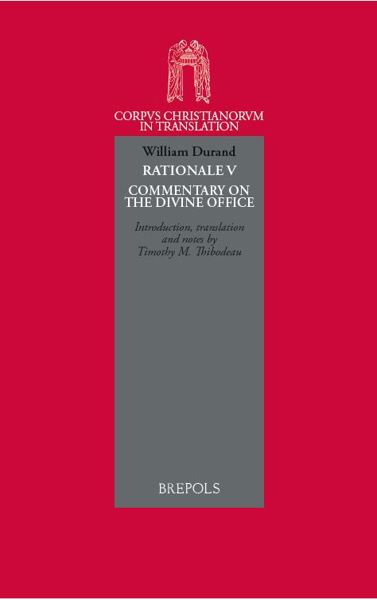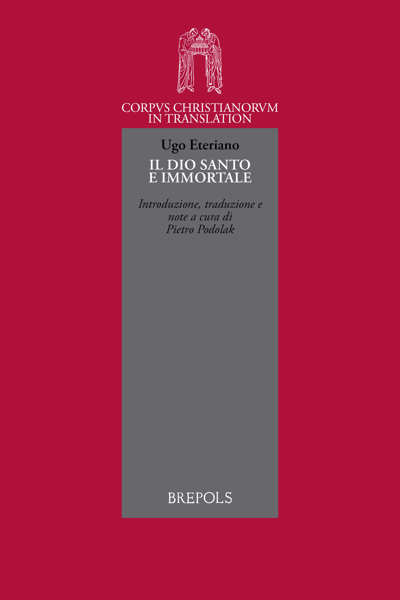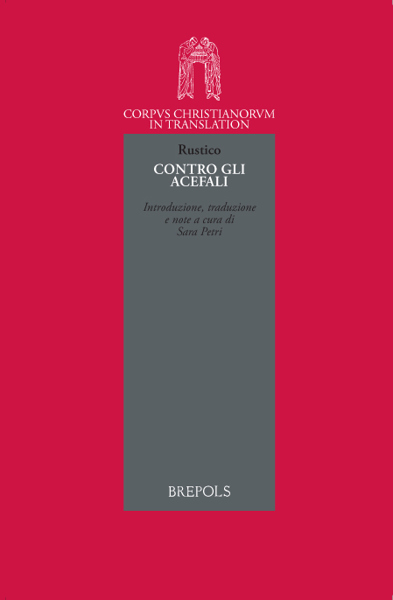
Paschasius Radbertus
'On the Body and Blood of the Lord', with the 'Letter to Fredugard'
Mark Vaillancourt (ed)
- Pages: 208 p.
- Size:156 x 234 mm
- Language(s):English
- Publication Year:2020
- € 40,00 EXCL. VAT RETAIL PRICE
- ISBN: 978-2-503-58391-4
- Paperback
- Available
- € 40,00 EXCL. VAT RETAIL PRICE
- ISBN: 978-2-503-58392-1
- E-book
- Available
First English translation from the Latin of the first monograph written on the Eucharist: On the Body and Blood of the Lord by the Carolingian theologian Paschasius Radbertus appearing in the critical edition found in Corpus Christianorum Continuatio Mediaevalis volume 16.
A priest of the Archdiocese of New York, Fr. Mark G. Vaillancourt is currently an adjunct professor of dogmatic theology for St. Joseph’s Seminary, Dunwoodie, and the president of Kennedy Catholic High School in Somers, New York.
The De corpore et sanguine Domini by Paschasius Radbertus was the first monograph ever written solely on the Eucharist. This English translation of the De corpore, along with its companion piece the Letter to Fredugard, make an important contribution to our understanding of the development of Eucharistic theology in the Carolingian era and after. Because of their place in history and the nature of their doctrine, these works give an important witness to the received tradition on the Eucharist, as well as demonstrate an early substantial change theory that contributed to the development of the doctrine of transubstantiation. The translation, along with its extensive commentary and notes, makes this volume in the Corpus Christianorum in Translation series an important resource for the study of Eucharistic theology.
The source text of this volume appeared in Corpus Christianorum, Continuatio Mediaeualis as Pascasius Radbertus, De corpore et sanguine Domini, cum appendice Epistola ad Fredugardum (CC CM, 16). References to the corresponding pages of the Corpus Christianorum edition are provided in the margins of this translation.
Preface
Bibliography
Introduction
Prologue
De corpore et sanguine Christi by Chapter:
Chapter 1 “It must not be doubted that Communion is the true body and blood of Christ.”
Chapter 2 “None of the faithful should be ignorant of the fact that this is the mystery of Christ.”
Chapter 3 “What are sacraments, or, why are they called sacraments.”
Chapter 4 “Whether this mystery of the chalice becomes a sacrament in figure or in truth.”
Chapter 5 “What the difference is between the offerings and figures of the Old Law and the sacrament of the body and blood of the Lord.”
Chapter 6 “What it means to receive the body and blood of the Lord worthily unto eternal life.”
Chapter 7 “The ways in which it is said to be the body of Christ.”
Chapter 8 “In this communion, either judgment or reward is received.”
Chapter 9 “Why it would be necessary that Christ, who was immolated once, be immolated daily, or what good do these mysteries offer to those who receive them worthily.”
Chapter 10 “Why this mystery is celebrated with bread and wine.”
Chapter 11 “Why water is mixed in the chalice.”
Chapter 12 “Whether this mystery would have something more to it whenever a good minister confects it, or less than what Truth promised if it is confected by an evil minister.”
Chapter 13 “Why these things do not change in color and taste in this sacrament.”
Chapter 14 “Why these things often appear in visible form.”
Chapter 15 “The words by which this mystery is confected.”
Chapter 16 “Whether this body can rightly be called bread after the consecration.”
Chapter 17 “Whether one who receives a larger or smaller amount has more or less of this mystery.”
Chapter 18 “Why this mystery was given to the disciples before the Passion.”
Chapter 19 “Why it is that a fragment of the body is mixed in the blood of Christ.”
Chapter 20 “Why it is that now the mystery of Holy Communion is celebrated fasting, when the Lord entrusted it to the Apostles after a meal.”
Chapter 21 “What it means when the Lord says: ‘I will not drink again of this fruit of the vine until I drink it anew in the Kingdom of my Father’.”
Chapter 22 “Whether there be any difference in this mystery between the reconciled just person and the penitent.”
Epistola Ad Fredugardum
Appendix
Indices
